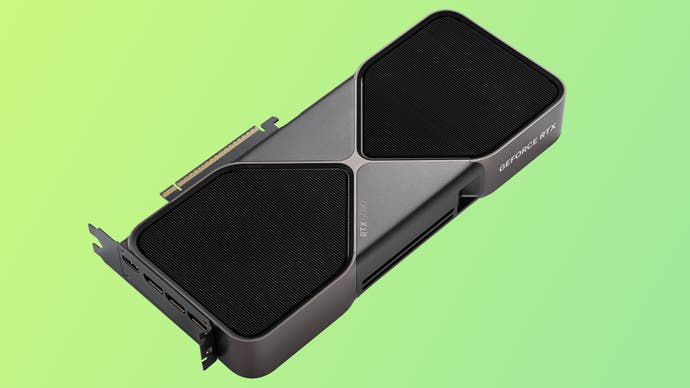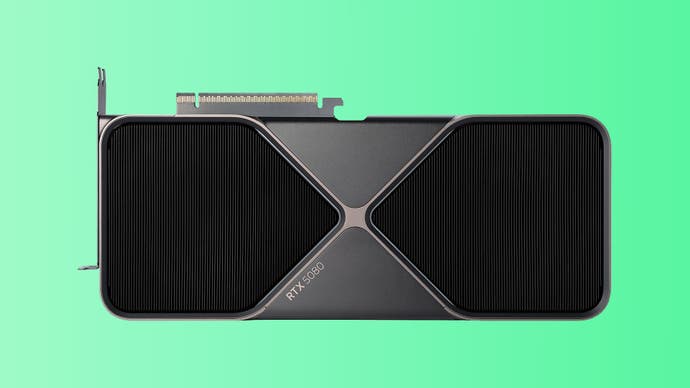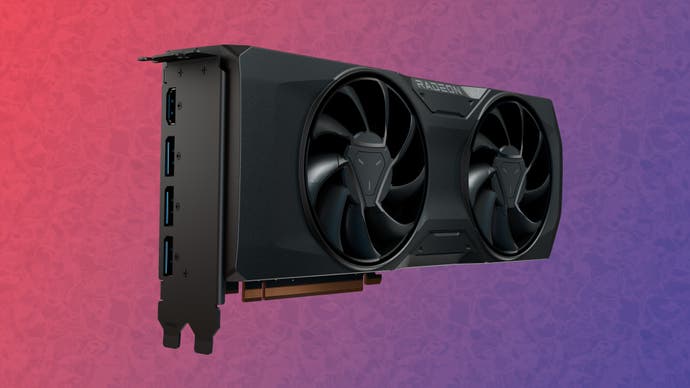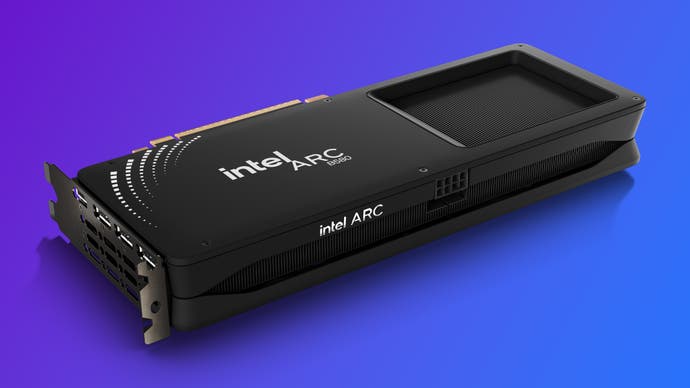Best graphics card 2025: DF's high-end, mid-range and budget GPU picks
With Nvidia GeForce, AMD Radeon and Intel Arc options.
Getting the best graphics card for your PC is the number one upgrade you can make, and can take your system from being a solid performer to a top-class choice. Therefore, it makes sense to spend some time researching which card is going to be best for your needs, budget and otherwise.
To make life easier, you can lean on Digital Foundry's extensive testing into the matter, as we've picked out the best GPUs that we've tested from across the catalogue of Nvidia, AMD and Intel releases at a range of price points to keep things simple.
The long and short of it is that, rather unsurprisingly, Nvidia's RTX 5090 is easily the best GPU we've tested, with a decent generational uplift over its predecessor, the benefit of Nvidia's new multi frame gen tech with DLSS 4 and upgraded VRAM in both capacity and speed.
If you want more information on which GPU you should be plonking in your system, then read on to find out our recommendations.
Best GPU overall: Nvidia GeForce RTX 5090

It is perhaps unsurprising that the best GPU outright that we've tested is the Nvidia RTX 5090. It sits atop the tree of Nvidia's new Blackwell architecture as a near £2000/$2000 spectacle of 4K gaming performance in an unfathomably slender form factor - at least in its hard-to-find Nvidia Founders Edition iteration, with third-party cards largely using the customary triple-slot designs we've come to expect from flagship Nvidia GPUs.
With this in mind, in our review, we noted the 5090 to offer an average performance uplift of 31 percent at 4K where folks who are considering purchasing this card are likely to be playing games. To put that into context with some games, in Alan Wake 2, the RTX 4090 managed just shy of 35fps at 4K, while the 5090 pushed 47fps, while in Avatar: Frontiers of Pandora, the 5090 broke the 100fps barrier with a 112fps average against the 4090's 91fps result. As well as this, the card offers a virtual doubling of performance over the RTX 3090 Ti in the likes of Avatar and Cyberpunk, while AMD's best efforts with the RX 7900 XTX are left in the dust.
The 5090 is built on the same TSMC 4N process as the RTX 4090, but the GB202 GPU at its heart is a bigger die with faster GDDR7 memory and more power than the outgoing RTX 4090. That includes 20 percent more transistors and 32 percent more compute units and shaders, while its memory bus width, memory clock speed and VRAM allocation have all increased by a third with a mighty 32GB on-board. To run the RTX 5090, you will also need a beefy PSU given this card can draw upwards of 600W on its own from that 12VHPWR connector - which is now angled to make cable routing easier and to reduce the strain on the connector.
Nvidia relies heavily on the 5090's AI capabilities, something that remains true of the entire Blackwell lineup, with DLSS 4 adding the capability for up to 4x multi frame generation to smooth out visuals and excellent support for the new transformer model of DLSS, which has a heavier performance penalty on older graphics cards. That same AI prowess - and the 32GB of VRAM - also make the 5090 a potent workstation card for running local AI workloads or crunching through video production or scientific calculations.
While expensive, the RTX 5090 remains the best GPU outright for good reason, and if you can find one, you won't get better than this.
- Where to buy Nvidia GeForce RTX 5090: US and UK links
- Check price at Scan (UK)
- Check price at Newegg (US)
Best high-end GPU: Nvidia GeForce RTX 5080

Going slightly down a peg takes us to the RTX 5080 as our favourite high-end GPU at half the cost of the RTX 5090. While the 5080 isn't a huge leap forward versus the 4080 Super in pure performance terms, you're still getting a small frame-rate bump, way more overclocking headroom and multi frame generation at the same MSRP. Our RTX 5080 review showed the card getting 13 percent better performance than its predecessor across our 17-test sample, akin to a Ti-sized bump. There's also the fact that this is the only current-gen card at this price point, given AMD's abandoning of the high-end sector.
With this in mind, the results that the 5080 spat out are still excellent, with the likes of Dying Light 2 hitting 47fps at 4K where the 4080 Super manages 40fps. In F1 24 with all the RT enabled, the 5080 hits 78fps, while the 4080 Super garners a 70fps average. For reference, AMD's comparably priced RX 7900 XTX can only just manage 61fps, continuing to demonstrate Nvidia's dominance in ray-traced performance.
The 5080 also benefits from the huge frame-rate (if not performance) gains provided by DLSS 4 with multi frame generation. Being able to run the new transformer model with a negligible performance impact, boosting image quality and allowing more aggressive upscaling to be used, is another nice bonus versus an older-gen card.
Where the 5090 came with some sizeable upgrades to the spec sheet, the 5080 is a little less fortunate. The headline here is that it only comes with 16GB of VRAM, as the 4080 Super did, but with the point that the Blackwell card is using faster GDDR7 memory with 30 percent higher bandwidth, and an ever-so slight bump in overall CUDA core count. The RTX 5080 also requires a bit more power at 360W, although that is a much more manageable number than the 5090's 575W. Another nice bonus is that the RTX 5080 is the first GPU in a long time that overclocks well, with higher core clocks, significantly faster memory clocks and lower voltage all being possible to achieve on many cards.
The 5080 is nearly unopposed at this price point, but it's still an excellent option for 4K gaming.
- Where to buy Nvidia GeForce RTX 5080: US and UK links
- Check price at Scan (UK)
- Check price at Newegg (US)
Best mid-range GPU: AMD Radeon RX 7800 XT

This is probably the most competitive segment of the market right now, but AMD's RX 7800 XT is our favourite mid-range card. This is the most compelling RDNA 3 graphics card in our minds as it delivers excellent performance in non-RT games, has a comfortable 16GB of VRAM and normally comes at a very reasonable price. If you're looking to buy today*, this is the one.
We noted in our RX 7800 XT review that this card impresses at 1440p, with near-identical performance to the 4070 Super in the likes of Control and Cyberpunk 2077, while beating off the vanilla 4070 in Forza Horizon 5. The fact it's able to keep up in raster with the 4070 Super while costing less is excellent.
In addition, while RT performance isn't on par with the 4070 Super, it is at least a solid improvement over previous generations. For reference, in Dying Light 2 at 1440p, the RX 7800 XT managed 43fps against the 4070's 47fps, while the previous-gen RX 6800 XT could only manage 37fps - a result that matches the slightly cheaper RX 7700 XT. The gap is bigger in Cyberpunk 2077 and Control, but the RX 7800 XT still posted respectable results.
You do get FSR upscaling and frame generation here too, and even if FSR 3 isn't as strong as the new DLSS models, the previous model still helped the RX 7800 XT to above 60fps ray-traced at 1440p in Dying Light 2, while in Forza Horizon 5 at Extreme settings and no RT, it's ahead of the 4070.
At the moment, you won't necessarily get better in this £500/$600 price bracket than the RX 7800 XT. What happens with the 5070 being able to offer "RTX 4090 performance for $549" remains to be seen, as does AMD's results with the RX 9070 and 9070 XT. Until then, the RX 7800 XT gets the nod.
Where to buy AMD Radeon RX 7800 XT
Best budget GPU: Intel Arc B580

Intel's second-generation Arc Battlemage graphics cards are genuinely compelling in the budget category, outperforming rivals from Nvidia and AMD while delivering some nice extras like good upscaling (XeSS) and reasonable VRAM allocations. Our Intel Arc B580 review demonstrated the card's excellent RT performance, with the B580 beating the RTX 4060 in Alan Wake 2 by a full 29 percent and AMD's RX 7600 by an even more staggering 51 percent. It's a similar story in Metro Exodus, with Intel's card commanding a 16 percent lead over Nvidia and a full 77 percent advantage ahead of AMD's chosen representative.
Raster performance may not be as strong, with Alan Wake 2 rebalancing things with the 4060 appearing similar to the B580, while Black Myth: Wukong gives Nvidia a small lead over Intel. In Cyberpunk 2077 though, the 4060 is off the pace, with the B580 ahead by 23 percent. Even at 1440p in Forza Horizon 5, both Nvidia and Intel's cards can comfortably exceed 60fps with the game at Extreme settings. This comes with the point though that the B580 has more VRAM (12GB vs 8GB) and costs a whole $50 less.
It's not all plain sailing though, as the B580 suffered from some stutters in some of our tests such as in Marvel's Spider-Man: Miles Morales, and outright refused to play Cyberpunk 2077 with Psycho or Ultra RT. Intel says this is driver-related, and with more updates, hopefully issues like this can be ironed out. We've seen successes with Intel's driver updates providing a performance uplift with the Arc A-series of cards, and maybe that'll be the case here, too.
On the point of drivers, there is also the well-traversed issue of driver overhead with the B580 (hat tip to Hardware Unboxed for their work on this angle). If you've got an older and/or weaker CPU, such as an AMD Ryzen 5 5600 or Intel Core i5 12400F, then you're likely to see a greater reduction in performance with the Arc card than with AMD or Nvidia alternatives. With that in mind, we'd recommend either the 4060 Ti 8GB or RX 7700 XT for older systems, with the caveat that both of these cards are a bit more money. Alternatively, you can pick up a used RTX 3060 12GB, or make do with your CPU's integrated graphics until you can save up for something like our our mid-range choice.
Despite the caveats, the Arc B580 is still a great card at its £250/$250 MSRP - and the B570 offers quite similar performance with less RAM but a lower price too, making it the better value in some regions.
- Where to buy Intel Arc B580: US and UK links
- Check price at Overclockers (UK)
- Check price at Newegg (US)
Wrapping up
With that, our recommendations come to an end. I hope there's enough there to give you some food for thought for which GPU is going to be the best for you to choose for your next build, or to an upgrade an existing one.
Of course, we're always on the lookout for some of the best deals we can find on all manner of tech, including GPUs, and to keep informed with those, you'll want to follow @dealsfoundry.bsky.social on Bluesky. You can also pester Will (@wsjudd.bsky.social) or I (@rbithrey.bsky.social) directly.
